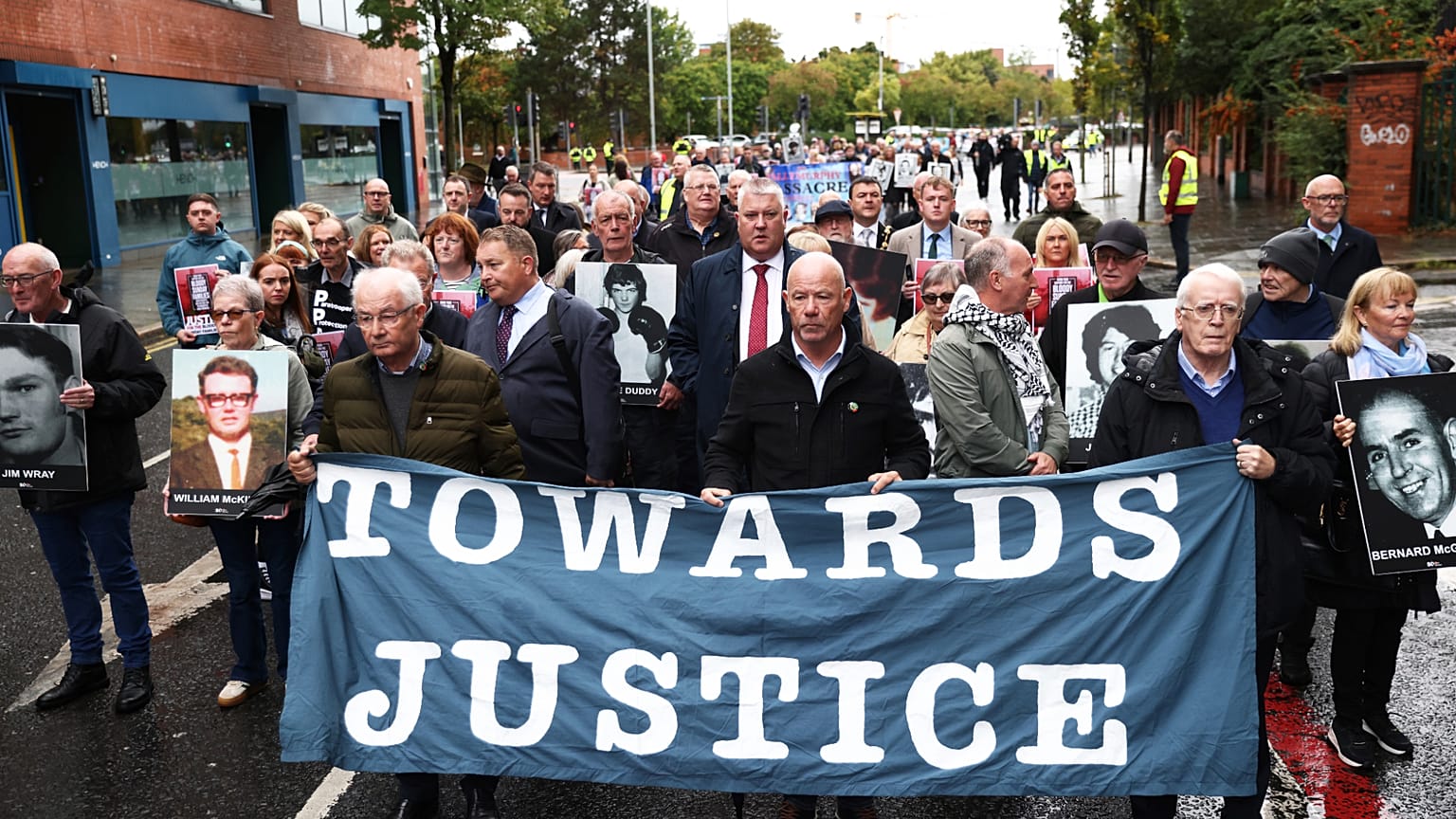Families March to Belfast Court as Bloody Sunday Trial Begins
Families of Bloody Sunday victims marched to Belfast Crown Court as the long-awaited trial of a former British soldier, accused of murder during the 1972 massacre, began on September 15, 2025.

Families of those killed on Bloody Sunday marched solemnly to Belfast Crown Court on Monday, September 15, 2025, as the long-anticipated trial of a former British soldier, known only as 'Soldier F,' commenced. The trial marks the first prosecution of a British soldier for the events of January 30, 1972, when paratroopers opened fire on unarmed civil rights demonstrators in Derry, resulting in 13 deaths and 15 injuries.
A Historic Day for Families
Relatives of the victims, many of whom have campaigned for justice for over five decades, carried photographs of their loved ones and walked behind a banner reading 'Towards Justice.' John McKinney, whose brother William was among those killed, described the day as momentous, emphasizing the family's relentless commitment to accountability. The families entered the courtroom with a sense of pride, aware of the historical significance of their pursuit, regardless of the trial's outcome.
The Trial and Its Context
The defendant, a former lance corporal in the British Army, appeared in court shielded from public view to protect his identity. He pleaded not guilty to two counts of murder and five counts of attempted murder. Prosecutor Louis Mably stated that the civilians shot on Bloody Sunday posed no threat to the soldiers and were unarmed as they fled. The trial is the culmination of years of legal and political struggle, reflecting the deep scars left by the Troubles, a period of sectarian conflict in Northern Ireland.
Decades of Delay and Controversy
Initial government inquiries in the 1970s cleared the soldiers involved, claiming they acted in self-defense. However, a comprehensive review in 2010 concluded that the soldiers had fired on unarmed civilians and subsequently lied about their actions. Then-Prime Minister David Cameron issued a formal apology, calling the killings 'unjustified and unjustifiable.' The findings paved the way for the prosecution of Soldier F, though the process has faced repeated delays and legal obstacles. The trial is seen as a test of Northern Ireland's ability to address historic injustices while balancing the concerns of victims' families and military veterans.